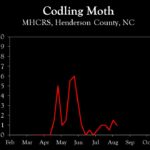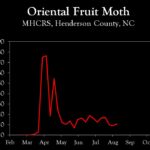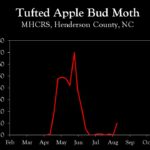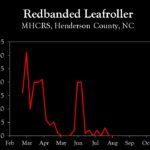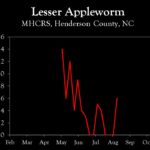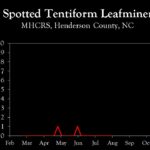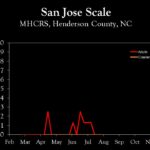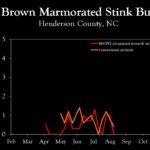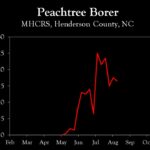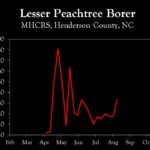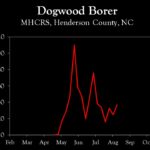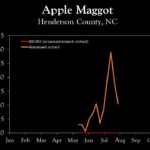WNC Orchard Insect Pest Populations – August 12, 2025
go.ncsu.edu/readext?1088132
en Español / em Português
El inglés es el idioma de control de esta página. En la medida en que haya algún conflicto entre la traducción al inglés y la traducción, el inglés prevalece.
Al hacer clic en el enlace de traducción se activa un servicio de traducción gratuito para convertir la página al español. Al igual que con cualquier traducción por Internet, la conversión no es sensible al contexto y puede que no traduzca el texto en su significado original. NC State Extension no garantiza la exactitud del texto traducido. Por favor, tenga en cuenta que algunas aplicaciones y/o servicios pueden no funcionar como se espera cuando se traducen.
Português
Inglês é o idioma de controle desta página. Na medida que haja algum conflito entre o texto original em Inglês e a tradução, o Inglês prevalece.
Ao clicar no link de tradução, um serviço gratuito de tradução será ativado para converter a página para o Português. Como em qualquer tradução pela internet, a conversão não é sensivel ao contexto e pode não ocorrer a tradução para o significado orginal. O serviço de Extensão da Carolina do Norte (NC State Extension) não garante a exatidão do texto traduzido. Por favor, observe que algumas funções ou serviços podem não funcionar como esperado após a tradução.
English
English is the controlling language of this page. To the extent there is any conflict between the English text and the translation, English controls.
Clicking on the translation link activates a free translation service to convert the page to Spanish. As with any Internet translation, the conversion is not context-sensitive and may not translate the text to its original meaning. NC State Extension does not guarantee the accuracy of the translated text. Please note that some applications and/or services may not function as expected when translated.
Collapse ▲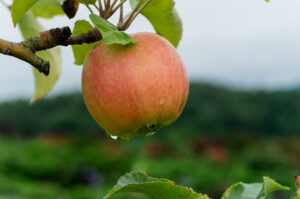 During the past week, codling moth and apple maggot numbers in traps have slightly declined, oriental fruit moth (OFM) numbers are similar to last week, and brown marmorated stink bug (BMSB) numbers remain surprisingly low.
During the past week, codling moth and apple maggot numbers in traps have slightly declined, oriental fruit moth (OFM) numbers are similar to last week, and brown marmorated stink bug (BMSB) numbers remain surprisingly low.
Codling moth and OFM. Regardless of location, any codling moth captured in traps are likely the third generation, which is not a full generation flight, because as daylength declines in August larvae enter diapause rather than complete development to the adult stage. Hence, infestations at this time of the year are highly unlikely if the crop has remained clean up to now.
OFM numbers remain similar to last week, but this insect can be a problem into September if populations are present in an orchard. Although there is no established pheromone trap threshold to dictate spraying, trap captures consistently in the 10 to 20 moths/trap range often are associated with problem orchards.
Apple maggot numbers at our abandoned site appear to be on the decline this week. Based on captures at this site, it looks like fly emergence peaked in late July to early August. This is about 3 weeks earlier than in recent years.
BMSB. Brown marmorated stink bug numbers remain very low on pheromone traps, despite the fact that 853 degree-days have accumulated since biofix, which is equivalent to about 27% emergence of the first generation. While it’s too early to make conclusions, this reduced trap capture is consistent with trends of recent years that suggest numbers are on the decline.
2025 Average Weekly Trap Captures
| HENDERSON COUNTY | |||
| Insects per trap | |||
| Jul 28 | Aug 4 | Aug 11 | |
| Codling moth | 2.5 | 1.5 | 1.0 |
| Oriental fruit moth | 10.0 | 9.0 | 11.0 |
| Tufted apple bud moth | 1.0 | 0.0 | 10.0 |
| Redbanded leafroller | 0.0 | 0.0 | 0.0 |
| Obliquebanded leafroller | 0.0 | 2.0 | 1.0 |
| Lesser appleworm | 0.0 | 0.0 | 6.0 |
| Apple maggot (unsprayed research orchards) | 0.0 | 0.0 | 0.0 |
| Apple maggot (abandoned orchard) | 29.0 | 18.0 | 10.5 |
| Brown marmorated stink bug (commercial orchards) | 1.2 | 0.8 | 0.4 |
| Brown marmorated stink bug (unsprayed research orchards) | 1.0 | 0.0 | 0.0 |
| Spotted tentiform leafminer | 0.0 | 0.0 | 0.0 |
| Dogwood borer | 33.0 | 25.0 | 37.0 |
| Peachtree borer | 15.0 | 17.5 | 16.5 |
| Lesser peachtree borer | 17.5 | 17.5 | 33.0 |
| San Jose scale | 0.0 | 0.0 | 0.0 |
*Note that these averages illustrate only the timing of insect emergence and fluctuations in populations, and are not representative of population levels in any given orchard. The only way to have an accurate assessment of an individual orchard’s populations is to set up traps in that orchard.
2025 Accumulated Degree Days
| HENDERSON COUNTY | ||||
| Jul 28 | Aug 4 | Aug 11 | ||
| Codling moth (Biofix: April 21) | 1944 | 2120 | 2241 | |
| Oriental fruit moth (Biofix: March 17) | 2799 | 2999 | 3163 | |
| Tufted apple bud moth (Biofix: April 14) | 2476 | 2677 | 2841 | |



